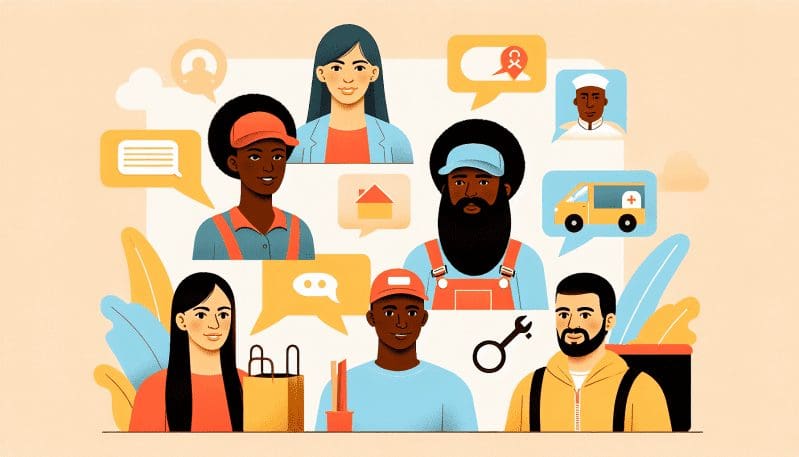In the expansive tapestry of today’s workforce, the gig economy has emerged as a vibrant and indispensable thread. Freelancers, consultants, and independent contractors from an array of backgrounds are redefining what it means to be ‘at work.’ Yet, for all its flexibility and autonomy, the gig economy harbors an inherent disconnect. Without the traditional office environment or company infrastructure, many gig workers find themselves operating in silos, devoid of the collaborative spirit and camaraderie that fuel innovation and career advancement. This isolation is particularly acute for workers from underrepresented groups who, aside from navigating the usual hurdles of gig work, must also confront systemic barriers that can stymie their professional growth.
How, then, can we weave a stronger social fabric that not only supports but also celebrates the diversity within the gig economy? The answer lies in creating inclusive platforms and initiatives that provide a springboard for networking, mentorship, and community engagement. By doing so, we ignite the potential of every gig worker to connect, learn, and grow regardless of their background.
The Challenges of Diversity and Inclusion in the Gig Economy
The gig economy, while liberating, often lacks the structural support systems that traditional employment settings offer. Diverse gig workers, including people of color, women, LGBTQ+ individuals, and people with disabilities, face unique challenges that can inhibit their professional progress. Limited access to influential networks, a lack of mentorship opportunities, and the absence of a supportive peer community are significant obstacles that can amplify feelings of isolation and impede career trajectory.
Strategies for a More Inclusive Gig Ecosystem
The creation of digital platforms dedicated to the gig workforce is paramount. These platforms can host virtual networking events, mentorship programs, and forums for knowledge sharing. For instance, a digital marketplace could enable seasoned professionals to offer guidance to newcomers, or a virtual roundtable series could discuss strategies for overcoming specific challenges faced by underrepresented groups in the gig economy.
Local events also carry immense power in building a sense of community. Workshops, conferences, and social mixers can be organized with inclusivity in mind, offering safe and welcoming spaces for gig workers to connect in person, share experiences, and create lasting professional relationships.
Lastly, advocating for policy changes that protect and empower gig workers is crucial. This includes pushing for equitable pay, anti-discrimination policies, and benefits typically reserved for full-time employees. Ensuring that gig workers are recognized and supported by legislation can help level the playing field for those in underrepresented demographics.
The Potential of a Connected Gig Ecosystem
Embracing inclusivity within the gig economy can lead to a flourishing ecosystem where diverse ideas prosper. When gig workers are provided with the same opportunities for connection and advancement as their counterparts in traditional roles, the entire industry stands to benefit.
Let us champion platforms that foster inclusivity, initiatives that empower, and policies that protect. Together, we can bridge the gap in the gig economy, creating a space where diversity is not only acknowledged but empowered to lead the charge into a more innovative and inclusive future. A future where every gig worker has the community and support needed to not just succeed, but thrive.




























